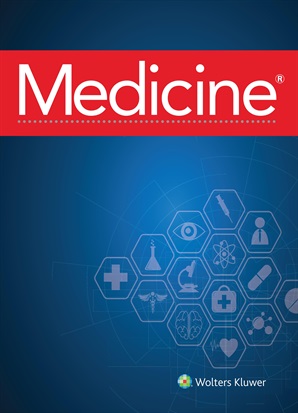摘要
目的:了解多学科合作空肠营养护理对严重烧伤病例的营养状况、疼痛程度、伤口愈合和生活质量的影响。研究对象为 2021 年 1 月至 2023 年 5 月在我院就诊的 120 例严重烧伤患者。纳入标准:诊断为重度烧伤;②入院时间在 18 小时以内;③心、肝、肾、认知功能正常;④签署知情同意书。排除标准:消耗性/代谢性疾病;②恶性肿瘤;③中途死亡;④孕妇或哺乳期妇女。患者分为两组:接受肠外营养的对照组(n = 60)和接受多学科空肠营养协作护理的观察组(n = 60)。后者包括一个多学科团队(烧伤科、内分泌科、心内科、肾内科)和经过专业培训的护理人员。空肠营养护理包括鼻空肠置管、个性化营养输注方案、密切监测生命体征、心理辅导以及与多学科团队定期会诊。评估结果包括血红蛋白、转铁蛋白、白蛋白水平、疼痛(视觉模拟量表)、伤口愈合、并发症、SF-36 生活质量和护理满意度。经过治疗后,观察组的血红蛋白水平明显提高(平均差异为 16.28 g/L,95% 置信度):与对照组相比,观察组的血红蛋白(平均差异:16.28 克/升,95% CI:12.5-20.1;Cohen d:2.0,95% CI:1.7-2.3)、转铁蛋白(平均差异:0.67 克/升,95% CI:0.5-0.9;Cohen d:2.5,95% CI:2.1-3.0)和白蛋白(平均差异:5.26 克/升,95% CI:4.2-6.3;Cohen d:3.5,95% CI:3.0-4.0)水平明显提高(P<0.05)。To access the impact of multidisciplinary collaborative jejunal nutrition care on the nutritional status, pain level, wound healing, and quality of life in severely burned cases. A total of 120 cases with severe burns who visited our hospital from January 2021 to May 2023 were enrolled. Inclusion criteria: ① severe burn diagnosis; ② admission within 18 hours; ③ normal heart, liver, kidney, and cognitive function; ④ informed consent signed. Exclusion criteria: ① consumptive/metabolic diseases; ② malignant tumors; ③ midway death; ④ pregnant or lactating women. Patients were divided into 2 groups: control (n = 60) receiving parenteral nutrition and observation (n = 60) receiving multidisciplinary collaborative jejunal nutrition care. The latter included a multidisciplinary team (burns, endocrinology, cardiology, nephrology) and professionally trained caregivers. The jejunal nutrition care included the placement of a nasojejunal tube, individualized nutrition infusion protocols, close monitoring of vital signs, psychological counseling, and regular consultations with the multidisciplinary team. Outcomes assessed included hemoglobin, transferrin, albumin levels, pain (Visual Analogue Scale), wound healing, complications, SF-36 quality of life, and nursing satisfaction. After management, the observation group indicated significantly higher levels of hemoglobin (mean difference: 16.28 g/L, 95% CI: 12.5-20.1; Cohen d: 2.0, 95% CI: 1.7-2.3), transferrin (mean difference: 0.67 g/L, 95% CI: 0.5-0.9; Cohen d: 2.5, 95% CI: 2.1-3.0), and albumin (mean difference: 5.26 g/L, 95% CI: 4.2-6.3; Cohen d: 3.5, 95% CI: 3.0-4.0) compared to the control group (P < .05). The Visual Analogue Scale scores in the observation group were significantly lower (mean difference: 3.18 points, 95% CI: 2.8-3.5; Cohen d: 6.5, 95% CI: 5.9-7.2), and the wound healing time was significantly shorter (mean difference: 7.41 days, 95% CI: 4.5-10.3; Cohen d: 0.8, 95% CI: 0.6-1.0, P < .05). The observation group showed a lower complication rate (P = .02). Additionally, the observation group demonstrated significant improvements in SF-36 quality of life scores and higher nursing satisfaction (96.67% vs 80.00%, P = .0001). Multidisciplinary collaborative jejunal nutrition care effectively improves nutritional status, reduces pain, accelerates wound healing, and enhances quality of life and satisfaction in severely burned patients.

 求助内容:
求助内容: 应助结果提醒方式:
应助结果提醒方式:


